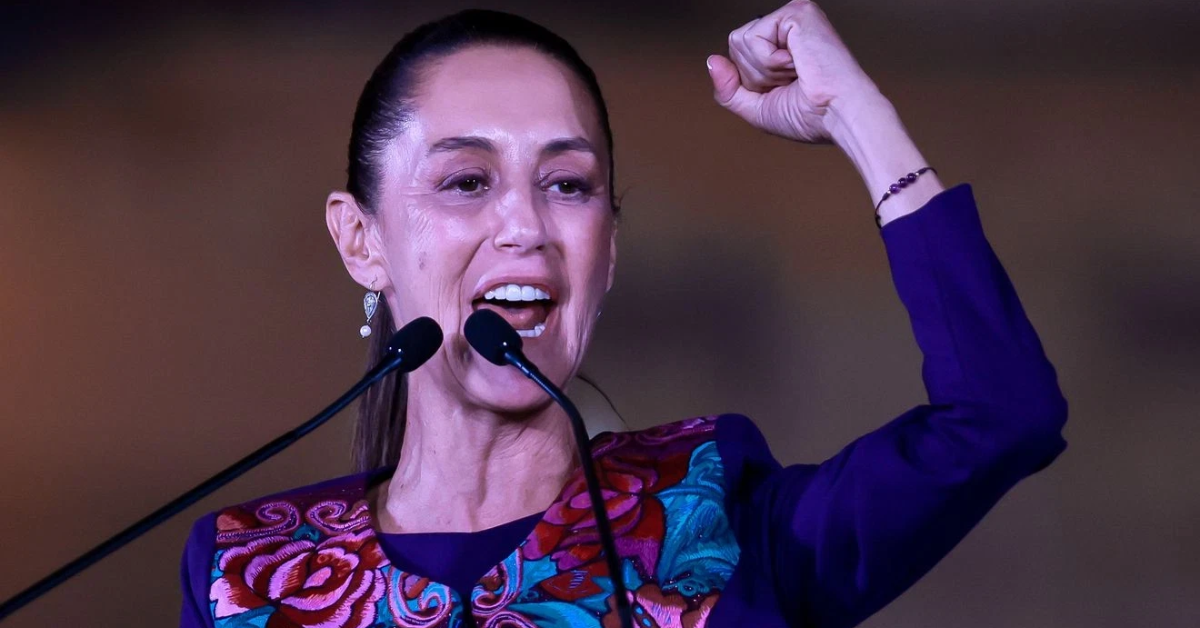Mexican President Andrés Manuel López Obrador has called on U.S. immigration authorities to spare soccer fans from deportation during the upcoming LA Galaxy match. The call came after concerns that some fans, especially those of Mexican origin, could be detained at the game due to their immigration status. The president’s remarks have sparked discussions about the tension between U.S. immigration enforcement and the celebration of cultural events that often see a high turnout of undocumented immigrants.
López Obrador’s request, made during a recent press conference, emphasizes the importance of allowing fans to enjoy their love for soccer without the fear of deportation. He specifically pointed to the upcoming match as a symbol of cross-border unity and the shared passion between Mexican and American fans for the sport. According to the president, it is essential that U.S. authorities, especially Immigration and Customs Enforcement (ICE), recognize the significance of such events and not create fear or anxiety by conducting immigration raids during public gatherings.
The president’s call is not without controversy. Some critics argue that immigration laws should be strictly enforced, even at public events like soccer games. They contend that failing to enforce the law could undermine efforts to manage immigration. However, López Obrador counters that these events represent cultural celebrations and that sports, particularly soccer, provide an opportunity for people to come together and enjoy shared experiences regardless of their legal status.
López Obrador also reminded the U.S. government that many Mexican nationals living in the U.S. are hard-working individuals who contribute significantly to society. He believes that targeting these people during festive occasions sends the wrong message and contributes to fear and division within communities.
This issue comes amid ongoing debates in the U.S. over immigration reform and the treatment of undocumented immigrants. While some states and cities have introduced sanctuary policies aimed at protecting immigrants, federal agencies like ICE continue to enforce deportation laws, often creating friction with local communities.

In Los Angeles, which has a large Mexican-American population, tensions between local immigrant communities and federal authorities are particularly high. The idea of focusing immigration enforcement efforts at public events only exacerbates these tensions, critics argue.
The soccer game in question, featuring the LA Galaxy, has attracted large numbers of fans in previous years, many of whom are of Mexican descent. For many, it is more than just a game; it is a cultural event that celebrates their heritage and identity. The fear of deportation has cast a shadow over the excitement leading up to the game. Many fans are now expressing concerns about attending the match, unsure whether they could be detained by ICE or local law enforcement due to their immigration status.
This situation highlights the complex relationship between cultural celebrations, immigration enforcement, and public safety. While U.S. immigration laws are clear about the need for enforcement, there is growing awareness about how these laws are applied, particularly in public settings where they may affect large, diverse groups of people. Advocates for immigrant rights argue that these laws should be applied in a way that does not harm the broader community or interfere with people’s ability to participate in cultural and social events.
Supporters of López Obrador’s stance have praised his willingness to publicly stand up for the rights of Mexican nationals living in the U.S. They argue that his call for a more humane approach to immigration enforcement resonates with the shared values of fairness and inclusivity. By emphasizing the importance of community and cultural pride, López Obrador is appealing to both the Mexican diaspora and American citizens who support immigrant rights.
While the president’s comments have certainly caught attention, it remains to be seen whether U.S. immigration forces will heed his call. The issue has sparked a wider debate about how immigration laws should be enforced, particularly in places where large gatherings occur. As the match draws closer, the tension surrounding the issue may continue to build, with both fans and lawmakers closely monitoring any developments related to immigration enforcement at the event.
In conclusion, the Mexican president’s appeal to U.S. authorities is a reminder of the broader issues surrounding immigration and the role of law enforcement in everyday life. As the U.S. and Mexico continue to grapple with immigration policy, the clash between enforcement and cultural celebration will likely remain a significant point of contention. Whether or not immigration forces will heed the president’s request will have far-reaching implications for both sports fans and the ongoing debate over U.S. immigration policy.








